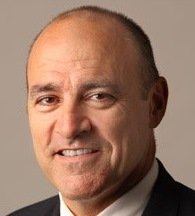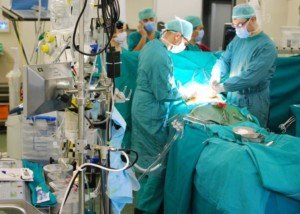
Why don’t more heart surgeons perform off-pump (beating heart) surgery?
Off-pump heart surgery carries less risk of stroke and other serious issues when compared to on-pump heart surgery (i.e., operations that use the heart-lung, or cardiopulmonary bypass, machine).
I wondered why, in this day and age, off-pump surgery isn’t the standard for heart surgeons; why is it still the exception.
Coronary artery bypass grafting surgery is known as CABG.
“I have performed 80 percent of my CABGs off-pump for the past nine years with a dramatic reduction in blood utilization, stroke and renal failure,” says Dr. Michael Fiocco, Chief of Open Heart Surgery at Union Memorial Hospital in Baltimore, Maryland, one of the nation’s top 50 heart hospitals.
With beating heart surgery, post-operative depression occurs less frequently.
Dr. Fiocco continues, “The medical literature has a mixture of articles saying off-pump is better, off-pump is the same as on-pump, and even some that say off-pump is worse.
“Bottom line, in the hands of skilled and experienced off-pump surgeons, the results are better.”
Why don’t more cardiothoracic surgeons do beating heart procedures?
“The reason that only 25-30 percent of cases nationwide are performed with the heart beating is because it is technically more demanding,” explains Dr. Fiocco.
“It also requires very skilled assistants and dedicated anesthesiologists.
“Most surgeons do not have the patience to work their way through the learning curve to become skilled enough to approach the majority of cases off-pump.
“It is a challenging technique, but I feel very strongly that off-pump surgery will become even more important to learn as the population ages more and more.”
Who benefits most from this kind of surgery?
“Elderly patients see the greatest benefit from off-pump surgery, while a patient less than 60 probably benefits very little,” says Dr. Fiocco.
Can you elaborate?
“Age is only important as it relates to the disease state of the patient. Most younger patients tend to be healthier, less likely to have kidney, lung or vascular disease.
“Elderly patients are more likely to have renal insufficiency, COPD, history of stroke, calcification of the aorta, etc.
“These are the patients who see a marked risk reduction with off-pump CABG.
“That being said, there are some 80-year-olds who are healthy and I have no problem doing on-pump, and some 50-year-olds who are sickly and worrisome.
“But, in general, the younger are healthier and will tolerate either method.”
What kind of patients would probably do better with the heart-lung machine method?
“Off-pump surgery requires manipulation of the heart to visualize all areas,” says Dr. Fiocco.
“This is remarkably well-tolerated in most, but some patients develop a drop in blood pressure or EKG changes severe enough that they must be placed on-pump.
“Patients with a large heart, thick heart muscle due to high blood pressure, and cases that are true emergencies are usually the ones which can’t be performed off-pump.”



























